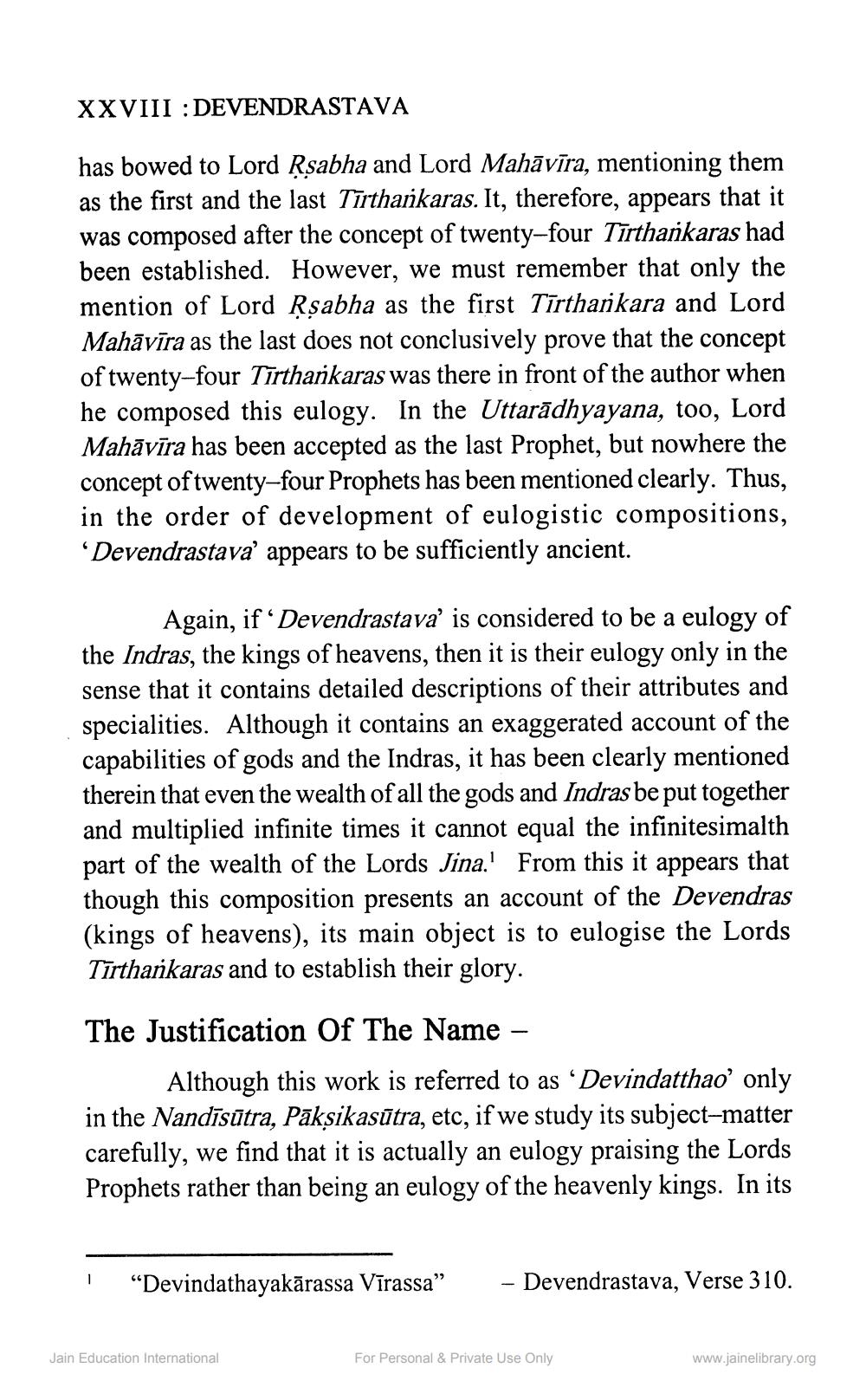________________
XXVIII : DEVENDRASTAVA
has bowed to Lord Rsabha and Lord Mahāvīra, mentioning them as the first and the last Tīrtharkaras. It, therefore, appears that it was composed after the concept of twenty-four Tīrthankaras had been established. However, we must remember that only the mention of Lord Rsabha as the first Tīrthankara and Lord Mahāvīra as the last does not conclusively prove that the concept of twenty-four Tīrtharkaras was there in front of the author when he composed this eulogy. In the Uttarādhyayana, too, Lord Mahāvīra has been accepted as the last Prophet, but nowhere the concept of twenty-four Prophets has been mentioned clearly. Thus, in the order of development of eulogistic compositions, ‘Devendrastava' appears to be sufficiently ancient.
Again, if ‘Devendrastava’ is considered to be a eulogy of the Indras, the kings of heavens, then it is their eulogy only in the sense that it contains detailed descriptions of their attributes and specialities. Although it contains an exaggerated account of the capabilities of gods and the Indras, it has been clearly mentioned therein that even the wealth of all the gods and Indras be put together and multiplied infinite times it cannot equal the infinitesimalth part of the wealth of the Lords Jina.' From this it appears that though this composition presents an account of the Devendras (kings of heavens), its main object is to eulogise the Lords Tīrtharkaras and to establish their glory.
The Justification Of The Name -
Although this work is referred to as ‘Devindatthao' only in the Nandīsūtra, Pāksikasūtra, etc, if we study its subject-matter carefully, we find that it is actually an eulogy praising the Lords Prophets rather than being an eulogy of the heavenly kings. In its
I
“Devindathayakārassa Vīrassa"
- Devendrastava, Verse 310.
Jain Education International
For Personal & Private Use Only
www.jainelibrary.org




